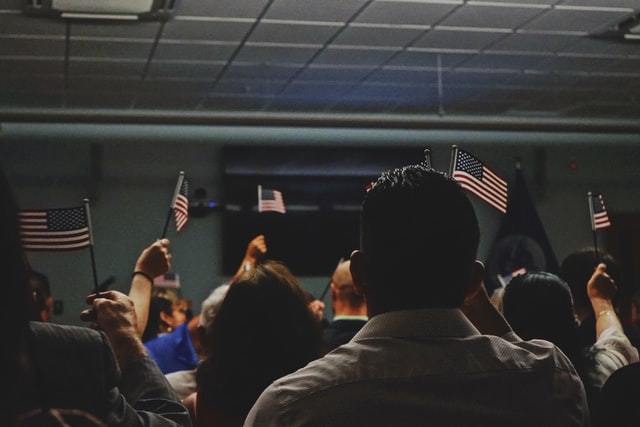
WHEN Democratic Sen. Bob Menendez of New Jersey and Rep. Linda Sanchez of California first introduced the U.S. Citizenship Act of 2021 in Congress on Feb. 18, the general consensus among immigration activists was mixed.
Some criticized the bill — which largely calls for reviews and not immediate repeals of the immigration policies of former President Donald Trump — for not being proactive enough.
But many saw the bill as a win, the first step into what Democrats are calling a more “humane” immigration plan.
“What the immigrant community was just put through these last four years was beyond cruel,” Menendez said in a virtual press conference unveiling the bill. “Trump assailed DREAMERS and [Temporary Protected Status] holders to strip their legal status. He slashed legal channels of immigration into our country. He stole from our military to pour billions into an ineffective border wall. And instead of addressing the root causes of migration, he cut off aid to Central America.”
As previously reported in the Asian Journal, the sweeping immigration bill seeks to address the many facets of immigration policy from improving border security technology and expanding the asylum program to protecting employee-based immigration and creating an eight-year fast-track to citizenship for about 11 million undocumented people.
The bill also includes the Reuniting Families Act, which addresses the exorbitant backlog in granting visas through family-based and employment-based programs.
Chinese American U.S. Rep. Judy Chu (D-C.A.) first introduced the measure in 2019 and seeks to strengthen and modernize family-based petitioning, the most common way that Asian immigrants reunite with their families in the U.S.
According to John Yang, executive director of Asian Americans Advancing Justice | AAJC, about 70% of Asians who migrate to the United States opt for family-based immigration and have done so since the Immigration and Nationality Act of 1965, which established family-based immigration.
However, family-based visa caps have not risen since 1990, leading to an extreme backlog in processing these visas for the exponentially growing Asian community in the U.S.
Currently, there are 1.7 undocumented Asian immigrants living in the U.S., many of whom are frontline workers in the health, food and emergency industries, Yang pointed out.
“The importance of immigration policy for Asian Americans — and for Americans as a whole — cannot be understated,” Yang said at a press briefing on Feb. 24, referencing census data that projects that Asian Americans will make up the largest community of immigrants in the U.S. by 2055.
Currently, there are about 4 million immigrants stuck in these backlogs; additionally, more than 1 million with H1-B visas are “stuck in temporary status,” Yang said.
Based on current patterns of immigration, about 40% of immigrants hail from Asia and about two-thirds of Asians and Asian Americans are immigrants. About 90% are either immigrants or children of immigrants.
Yet, immigrants from the Philippines are among the groups that have the longest wait times for processing, along with those from Mexico, China, India and Vietnam, Yang said.
The Trump administration — among its many restrictive immigration policies and practices — included gutting family-based petitioning in favor of more merit-based employment visas, the beneficiaries of which the administration saw as more of a priority.
A majority of immigrants from Asia who are able to come to the U.S. on employment-based visas come from the tech and telecommunications space, but according to Chu, prioritizing one immigration program over another puts families at risk because it narrowly favors individuals who possess certain education and employment credentials over others.
“Prioritizing merit-based or employment-based visas at the expense of family-based visas is counterproductive,” Chu said at the press conference. “In reality, family and employment visas are linked; people with high skills also have families and they are motivated to come to the U.S. if they can also bring their families. Immigrants on family-based visas contribute greatly to the economy, they go on to start businesses and create jobs and only allowing certain people with higher education would put other industries at a disadvantage.”
Though in the past certain immigration reform bills have garnered bipartisan support, the likelihood of the U.S. Citizenship Act of 2021 passing nervously hangs in the balance as Democrats hold thin majorities in both chambers of Congress.
The bill would require at least 10 Republican votes to bypass a Senate filibuster and advance the bill to a final vote. But Republicans have criticized the bill for being too lax on border security and argue that the broad pathway to citizenship will encourage illegal immigration.
Upon the first introduction of the bill, both Sanchez and Menendez said that there will be a possibility of alternative approaches to ensure the bill has bipartisan support.
“We are pursuing an ‘all of the above strategy,” Sanchez told reporters in February. “All options are on the table, and we hope to pass robust immigration reform, but there are other great immigration bills that we also will be taking up and hopefully passing as well.”






